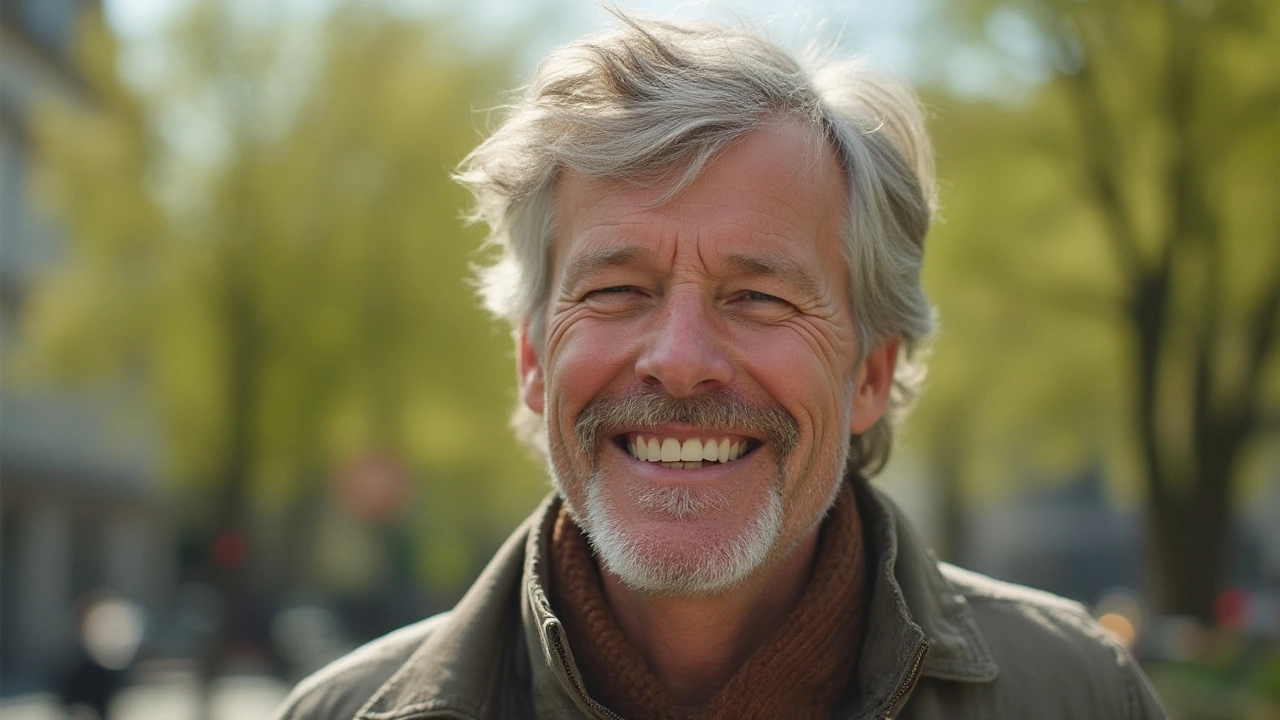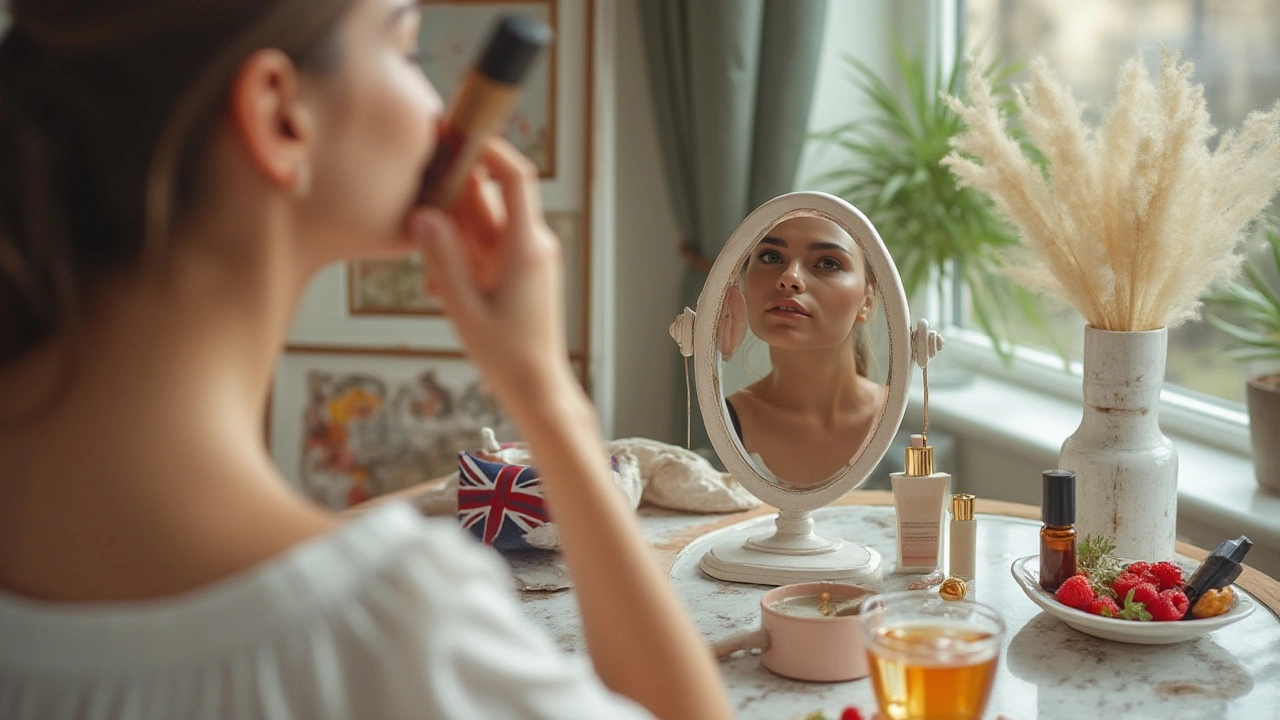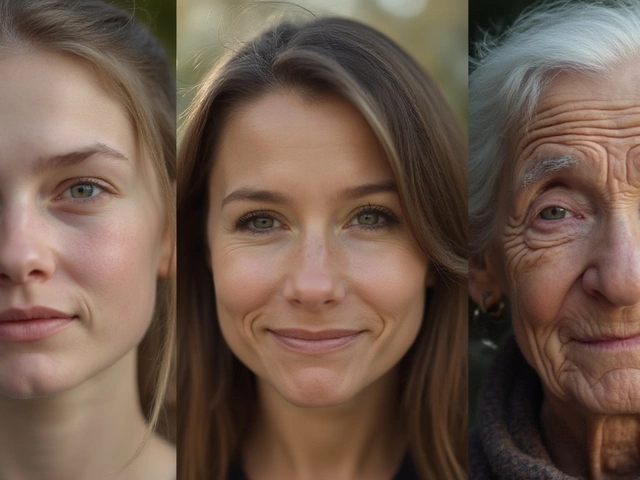You know those moments when you catch your reflection and think, “When did I start to look so…tired?” You’re not alone. Facial aging is the world’s greatest equalizer—nobody dodges it. But here’s the shocker: it’s not just about blowing out another birthday candle. The things that make our faces look older are sneakier and more relentless than anyone wants to believe. If you’ve ever wondered what’s honestly carving those lines and shadows, let’s get real about the secret forces making you look older, and what you can actually do about them.
The Surprising Culprits Behind Face Aging
Okay, so time has something to do with face aging—duh, right? But it’s not the main villain. The biggest troublemakers are often things you do daily without realizing. Take the sun: Ultraviolet (UV) rays account for about 80% of visible facial aging according to dermatologists in the U.S. That’s everything from fine lines to dark spots. We’re talking DNA damage at the cell level, causing your skin to thin, wrinkle, and sag. It’s not just laying out at the beach—walking your dog or driving to work with the window down adds up.
Smoking is another wild card. It narrows blood vessels in the skin, so not enough oxygen or nutrients get through. That’s why smokers tend to get deep, vertical lines around the mouth way earlier. City pollution latches onto skin, creating free radicals that break down collagen—the protein keeping your face bouncy and smooth.
Don’t overlook gravity. When you’re young, your skin effortlessly bounces back. With age, natural collagen and elastin drop. Gravity steps in, and things start sliding south: cheeks flatten, jawlines blur, eyelids droop. Weight loss and yoyo dieting just speed things along by depleting the fat pads that keep faces looking full and fresh.
Want one more shocker? Expressions matter. Love to giggle, squint, or frown? Each move creases the skin in the same spots, setting up permanent grooves. Repetitive muscle movement explains why crow’s feet and frown lines show up sooner for some people. Sleeping position matters too. Always sleeping on one side or on your stomach can create lines that become permanent with time.
Here’s a quick look at how the main culprits stack up:
| Main Cause | Aging Effect | Stats/Facts |
|---|---|---|
| UV Sun Exposure | Wrinkles, spots, saggy skin | Up to 80% of visible aging |
| Smoking | Deep lines, sallow skin | Faster skin thinning and wrinkling |
| Gravity & Loss of Volume | Sagging cheeks, jowls | Cheek fat and bone density lose about 1% per year after 30 |
| Facial Expressions | Dynamic wrinkles become static | Permanent grooves with age |
| Lack of Sleep & Stress | Dull skin, dark circles | Reduces skin repair and collagen |
Things People Do That Age Their Face Faster
If you think those fancy creams will outsmart your bad habits, I have bad news. The stuff we do—or forget to do—plays a bigger role than most lotions ever will. For starters, skipping sunscreen is the biggest mistake, and it’s not just for beach days. Indoor lighting, even blue-light from screens, amps up skin aging. A 2020 French study found that daily SPF use delays facial aging noticeably, even in people already over 40.
Poor sleep is another sleeper hit. A University Hospitals Cleveland study in 2013 found that people who sleep less than five hours a night show twice the signs of skin aging compared to good sleepers—think more fine lines, uneven pigment, baggier skin. Chronic stress floods your body with cortisol, chipping away at collagen faster than most people realize. So, when life gets hectic, your face remembers.
Let’s talk about bad skin care habits. Ever scrub your face raw, then slap on whatever’s within reach? Over-cleansing, using harsh products, and never moisturizing mess with your skin’s protective barrier. Suddenly, your face is more prone to redness, roughness, and, yep, collagen loss.
Many folks ignore the basics of hydration. Drinking too little water makes your skin dull and thin. And that twice-a-week wine ritual? Alcohol dehydrates and breaks down vitamin A, a molecule your skin needs to repair itself. Excess sugar and processed food ramp up a process called glycation, where sugar molecules latch onto collagen and mess it up. Skin loses spring, shows lines, and doesn’t glow.
Let’s not forget the effect of pollution, especially if you live in a city. Airborne particles increase inflammation and free radical damage, speeding up the breakdown of collagen. One recent Korean study found that people in high-pollution areas developed lines and pigment spots up to five years sooner than those in cleaner air.
Main takeaways? Sunscreen isn’t optional. Good sleep isn’t just about energy, it’s about looking more awake. Hydrate, skip sugar and cigarettes, and wash off pollution each night. You can spend a fortune on beauty gadgets, but none will protect you if you’re losing sleep and roasting under the sun.
Here are the most common daily habits that age your face faster than they should:
- Neglecting to wear sunscreen—even on cloudy or cold days
- Sleeping less than 7 hours regularly
- Smoking, including vaping and secondhand smoke
- Eating a lot of sugar, white bread, and processed foods
- Heavy alcohol use
- Regular exposure to city pollution
- Not moisturizing enough, especially after age 30
- Sleeping face-down or on your side every night
- Over-washing or using harsh cleansers
- Chronic stress and anxiety
- Squinting a lot (get your eyes checked!)

How Genetics Impact the Way Your Face Ages
If you secretly examine your parents’ faces for clues to your own fate, you’re onto something…but only partly. Genetics do play a role, shaping the thickness of your skin, bone structure, how well your body produces collagen, and even your skin tone. Darker skin types, for instance, have more melanin, which protects against sun damage and explains why deep wrinkles show up later compared to lighter skinned folks. If you inherited strong cheekbones, odds are high your face will age a little better because those bony supports hold things up longer—scientists call this ‘facial scaffolding.’
Still, environment trumps genes. There’s a classic study from the Journal of Investigative Dermatology that analyzed identical twins—one sun-worshipper, one sunscreen fanatic. The results? The sunscreen twin looked years younger every time. Lifestyle wins over DNA. Sure, your genes might speed or slow the process, but they don’t control whether you wear SPF or smoke a pack a day.
Hormone shifts are another wild variable. When estrogen levels drop during menopause (usually between ages 45-55), collagen loss speeds up, and skin starts to thin and slacken rapidly—sometimes by 30% in the first five years. That’s just biology. Men don’t dodge this either, though testosterone’s decline is slower and more gradual.
Ethnicity can matter in terms of how people age, but again, lifestyle factors combine with inherited traits. If you’re curious how you might age, look at close family members who lived in similar sun conditions as you. Still, embracing healthy habits can beat out even the best or worst genetic hand.
Visible Signs of an Aging Face—and What’s Happening Under the Surface
The usual suspects—wrinkles, dark spots, sagging—are just the tip of the iceberg. Skin changes start below the surface, long before you see fine lines in the mirror. Collagen production drops by about 1-1.5% per year after age 25. By the time you hit your late 40s, your skin may have lost up to 25% of its starting collagen. That means thinner, less springy skin—prone to creasing and drooping.
Elastic tissue underneath breaks down as well. That’s why your cheeks aren’t as full, and your jawline softens. Sun damage kicks pigment cells into overdrive, so brown spots, freckles, and blotchy patches start showing up. This isn’t just about age—it’s also about how much UV and pollution your skin has soaked up over the years.
If you notice tiny red or purple veins, called ‘spider veins,’ showing up around your nose or cheeks, you’re seeing UV damage at the vessel level. Puffy eyes and dark circles? Usually a combo of genetics, poor sleep, sun damage, and—you guessed it—gravity shifting fat deposits downward. The mouth often shows aging fastest, with lines above the lips and loss of volume. Loss of bone mass in the jaw and cheeks (which naturally happens with age) only adds to the saggy, hollowed look.
Some surprising signs people miss:
- Dry, rough texture that no cream fixes
- Enlarged pores—because collagen loss means less support around pores
- Brightness and glow fading, even without visible wrinkles
- Skin looks more translucent, veins are more visible
- Downturned mouth corners, making you look tired or grumpy
It’s not about chasing perfection. But knowing these signs means you can actually target what’s changing—not just buying another miracle-in-a-bottle product with zero impact. And trust me, I’ve tested them all. Once I kept snapping pictures of myself to see if a cream worked—Harvey thought I was starting a secret Instagram.

Smart Ways to Keep Your Skin Looking Youthful
You can’t pause time, but you can slow the visible effects. The best move? Stack small, daily habits that actually protect and support your skin. Dermatologists everywhere say sunscreen is your non-negotiable. Use at least SPF 30, even if the sky is a grey sock. Reapply every 2-3 hours if you’re outside. Sunglasses and a hat add extra insurance, stopping crow’s feet before they start.
Hydration from the inside out is underrated. Aim for at least eight glasses of water daily (coffee doesn’t count). Those with dry or thinning skin should slather on a fragrance-free moisturizer within 60 seconds of washing their face. Ceramides and hyaluronic acid deliver real, visible plumping and smoothing by holding onto water in your skin.
Don’t laugh, but eating spinach and berries does way more than that expensive night serum you got from a TikTok influencer. High-antioxidant foods (leafy greens, berries, avocado, walnuts, oily fish, and tofu) give your cells the firepower to fight off daily damage. If your doctor says it’s safe, consider a collagen supplement; small studies show they help with hydration and skin thickness when used for months.
Retinol—a vitamin A derivative—actually increases collagen and reduces dark spots if used consistently. So do vitamin C serums (look for 10-20% concentration), which fight off free radicals and brighten dull skin. Start slow, because irritation is a rookie mistake everyone makes. Gentle exfoliation (once or twice a week) helps remove dead cells and reveals the smoother side underneath but overdoing it is a one-way trip to redness and irritation.
Finally, ditch harsh lifestyle habits fast: stop smoking, limit alcohol, get your 7-8 hours, and manage stress with whatever works—breathwork, journaling, even dog walks. I started tapping my forehead (literally, it’s called emotional tapping) after a stressful day, and the calm shows on my face. If you can swing it, sleep on your back and invest in a silk pillowcase to cut down on skin creasing at night.
Here are the best, proven steps anyone can start—no miracles, just basics that work:
- Use broad-spectrum SPF 30+ every day, no matter the weather
- Drink plenty of water; add more if you consume caffeine or alcohol
- Munch on leafy veg, berries, fish, nuts, and protein rich foods
- Use a gentle cleanser and a rich moisturizer with ceramides or hyaluronic acid
- Try retinoids and vitamin C under dermatologist guidance
- Quit smoking, limit alcohol, and minimize processed sugar
- Get regular, quality sleep—aim for at least 7 hours
- Shield your skin from pollution with antioxidants and by cleansing nightly
- Adopt daily stress-busting rituals—journaling, walks, music, or even mindful breathing
Want your face to look years younger? It’s not about stalling age—it’s about *how* you age. Each daily act adds up. If there's one thing I tell my friends when they complain about new wrinkles, it's this: tomorrow’s face is built by today’s habits. No magic—just science, sunblock, sleep, and a dash of spinach.


